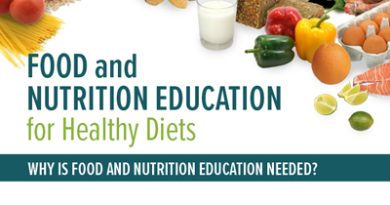Why Do You Need Sports Nutrition
Whether you are exercising to improve your health, a professional athlete, or a bodybuilder, sports nutrition plays a vital role in optimizing the beneficial effects of physical activity. Choosing the right nutrition can result in injury prevention, improved performance, and recovery.
According to Thomas Edison, “The doctor of the future will no longer treat the human frame with drugs, rather will prevent and cure disease with nutrition”.
To support your goals and health, different nutrition professionals offer several services. Moreover, this nutrition can range from a daily food diary to comprehensive nutrition and food plan for competitions and training.
Here we will explore the importance of sports nutrition, and how a sports nutritionist can support our training regime. Also, they covered supplements and nutrients that are frequently included in the dietary program of athletes. We will discuss these things in detail.
The importance of sports nutrition
Consuming balanced food and drink is very important for us all. However, people that are actively participating in sports on a routine basis should know that it can also affect their performance. For instance, athletes may require more calories compared to average people.
Those who are athletes, or even people that make up their minds to start exercising daily, should not let a good nutrition plan fall on their list of priorities.
Sports performance and the energy
Protein, carbohydrates, and fats all provide our body with fuel to maintain energy. Furthermore, carbohydrates are a primary fuel used by our working muscles. Adequate intake is necessary for preventing muscle fatigue. You are advised to monitor the fat intake, but do not completely remove it from the diet.
Fats provide fatty acids in our body that can be used as an energy source – especially if your exercise sessions last more than an hour. These fats also provide the building blocks for hormones as well as the formation of cell walls.
Proteins can be used as an energy source and they are critical for building new muscle tissues. People that are taking part in resistance training, their body will require additional protein.
Weight management
Eating well is very important to maintain a healthy weight. So, if you are trying to lose weight, strictly reducing fat, calorie intake or protein can hurt your performance. Meanwhile, it can also rigorously harm your body.
Some specific and useful foods that you should be a part of the diet for optimum sports nutrition include:
· Whole grains
· Vegetables
· Fruit
· Healthy fats.
· Hydration, and
· Sources of lean protein as well as low-fat dairy products
Staying hydrated is of utmost importance, especially when you are taking part in any sport. Inadequate fluid intake can lead to dehydration. It also affects performance and could be dangerous for health as well.
Although dehydration can occur in any activity, it is very prevalent when exercising in humid and hot conditions. The perfect thing for rehydration is water, but it is advised to use sports drinks with electrolytes, for those who are engaged in physical activity for longer than an hour.
After the event
You are highly advised to avoid neglecting your nutritional needs if you have had to walk the last half-mile of your run due to fatigue or even the things have not gone according to your plan in your game. No matter what the result is, it should be your priority.
Footballers, casual runners, athletes, and others typically do not consume enough fluids when they take part in different events or training. So, it is essential to restore balance after every event. The water is perfect for rehydration.
How sports nutrition professionals can help?
The major aim of a dietitian or sports nutritionist is to create a nutrition plan for the training needs of different clients. The plans will incorporate hydration and food. It does not matter whether you are training for professional events or exercising casually, sports nutrition is very integral to the performance.
Such a strategy can also help to:
· Enhance recovery.
· Promote good health
· Increase energy levels
· Help manage weight
· Develop growth and body composition
· Improve concentration
To create an effective nutrition strategy, sports nutrition professionals should always assess not just your diet and training, but also day-to-day habits, lifestyle, supplements, and whether you are taking any medication. Nutrition professionals should also support as well as be able to analyze you your short-term and long-term goals.
Nutrients
Carbohydrates
The 2 key forms of carbohydrates are 1. Starchy or complex, and 2. Simple sugars.
Complex carbohydrates are also known as starches, and they include grains such as pasta, rice, and bread. Just like simple sugars, some complex carbohydrates are better than others. Processed refined grains like white flour and white rice are less favorable because the fiber and nutrients are removed.
Rather, nutritionists recommend that where possible, people should opt for unrefined grains that are still packed full of minerals, fiber, and vitamins.
Whereas, simple sugars can be found in refined products and provide a sweet taste. These are naturally found in fruits, vegetables, and milk products.
We can also add them to our foods using honey, white or brown sugar, maple syrup, molasses, etc. Although all types of sugars that we eat are used by our body in the same way, it is highly suggested to get simple sugars from foods that are rich in sugars naturally because such foods also contain important nutrients and fiber.
Fats
It is an essential component of every diet because it is a great source of energy as well as helps our body to absorb nutrients.
Although fats are very important, we should still monitor the quantity of intake. Using a lot of fats could result in excess weight gain and increased risks of severe health concerns.
Saturated fats can easily be found in different animal products as well as processed foods like chips, meat, and dairy products. Such fat type is not considered to be healthy for the human heart and is thought to raise bad (LDL) cholesterol levels.
Avocados, nuts, oily fish, and olives are rich in unsaturated fats. Such fats are considered to be healthy for our hearts and can work to raise good (HDL) cholesterol levels as well as lower LDL cholesterol levels.
Protein
Every cell of our body contains it and due to this reason protein is important for helping to repair and build tissues. Proteins are also used to make hormones, enzymes, and several additional body chemicals. Furthermore, proteins are very crucial for forming the building blocks of bones, blood, cartilage, skin, and muscles.
Some of the most common protein foods include fish, meat, eggs, nuts, soya products, seeds, and pulses.
Supplements
Different bodybuilders, sportsmen, and athletes use supplements to boost their performance, recovery, and strength. Supplements are available in several forms ranging from minerals and multivitamins to creatine, protein, and many other ‘ergogenic’ aids.
You are advised to ensure that your diet is balanced, healthy, and suits your sport, before opting to take any form of supplement. It is also advised to consult a registered nutritionist or an accredited sports dietician you decide to take additional nutrients in supplemental form. These experts can assess your suitability for a particular supplement.
Some common sports supplements include the following:
Creatine
It is a high-energy compound that helps to provide and store energy. It is produced within our body and is naturally available in meat and fish. It can also be taken in the form of supplements.
To increase muscle strength, creatine is used by sportsmen and athletes as a dietary supplement. It is intended to boost performance during frequent, high-intensity exercise and also help you train for longer.
Whey protein
A natural protein that is naturally present in milk, and contains very little carbohydrate, lactose, or fat. It is considered a naturally complete protein, which means whey is made up of all essential amino acids that are required in our average daily diet.
Also housing the perfect combination of amino acids, this protein also contains a branch chain of amino acids (BCAAs) that are the 1st ones to be used while intense training. Whey provides our body with these amino acids and in turn, they assist with rebuilding and repairing lean muscle tissue.
Whey protein is extremely easy to digest so it can provide instant nourishment to our muscles and can absorb quickly.
Energy drinks
It is extremely important to stay well-hydrated during training and exercise. Even a little amount of dehydration could be detrimental to your performance levels. Although, drinking water is considered a good way to keep ourselves hydrated during exercise. Still, some bodybuilders and athletes opt for energy drinks, especially people that undertake endurance events like long-distance running.
Several energy drinks consist of sodium and other electrolytes that encourage drinking and help us to stimulate thirst. They also enhance our body’s ability to hold water. Furthermore, carbohydrates are contained in many energy drinks can provide us with extra energy which may be needed in the latter stages of training.
This article is reviewed by an experienced dietitian and is provided for general information purposes only. People having trouble with their diet plans are advised to consult specialists.




